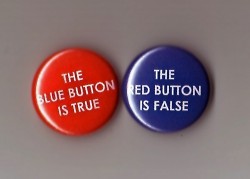Jul 15
15
Perfection Depends Upon Perspective and Perception
…and what Do I Mean When I Say that I AM (Perfect)?
Well, to prove the point, in the top line of the title, let’s start off with a verbatim quote from dictionary.com
Perfection
[per-fek-shuh n]
- Examples
- Word Origin
Noun
1. The state or quality of being or becoming perfect.
2. The highest degree of proficiency, skill, or excellence, as in some art.
3. A perfect embodiment or example of something.
4. A quality, trait, or feature of the highest degree of excellence.
5. The highest or most nearly perfect degree of a quality or trait.
6. The act or fact of perfecting.
Moving right along let’s check out what Wikipedia has to say within the context of its section about paradoxes which also tends, at least from my point of view, to prove that the word “perfect” does, indeed, depend upon perspective and perception:
Paradoxes
Vanini
The parallel existence of two concepts of perfection, one strict (“perfection,” as such) and the other loose (“excellence”), has given rise — perhaps since antiquity but certainly since the Renaissance — to a singular paradox: that the greatest perfection is imperfection.
This was formulated by Lucilio Vanini (1585–1619), who had a precursor in the 16th-century writer Joseph Juste Scaliger, and they in turn referred to the ancient philosopher Empedocles. Their argument, as given by the first two, was that if the world were perfect, it could not improve and so would lack “true perfection,” which depends on progress.
To Aristotle, “perfect” meant “complete” (“nothing to add or subtract”). To Empedocles, according to Vanini, perfection depends on incompleteness (“perfectio propter imperfectionem“), since the latter possesses a potential for development and for complementing with new characteristics (“perfectio complementii“). This view relates to the baroque esthetic of Vanini and Marin Mersenne: the perfection of an art work consists in its forcing the recipient to be active—to complement the art work by an effort of mind and imagination.[6]
The paradox of perfection—that imperfection is perfect—applies not only to human affairs, but to technology. Thus, irregularity in semiconductor crystals (an imperfection, in the form of contaminants) is requisite for the production of semiconductors. The solution to the apparent paradox lies in a distinction between two concepts of “perfection”: that of regularity, and that of utility. Imperfection is perfect in technology, in the sense that irregularity is useful.[7]
———————————————————-
Let’s admit something right up front …I’ve been pissing people off with my perspectives ever since I left Christianity in all its myriad forms, that is, organized, unorganized and disorganized – this, after late in life, becoming ordained and licensed to do things such as officiate at weddings, funerals and speak from a pulpit and I even became the lackey (right hand, go-to guy) of the president of the denomination (the largest of its kind in the world) as well as becoming a contributing writer and the senior editor of its monthly magazine and a conference speaker, often as a stand-in for the above referenced president, when he had to be elsewhere.
Please don’t ask me what denomination, because what I write is anathema to many of their pet doctrines and thus they tend to discredit anything I say …even that I exist and one of the three primary reasons I have hidden behind the pseudonym “Brad Cullen” who was the imaginary hero of my first novel Leapfrog which is basically a collage of true stories buried behind names and places changed to protect me from litigation.
How I came to use “Brad” as my pseudonym was because my agent in Los Angeles said that the large publisher who finally accepted Leapfrog (after seven rejection slips from others) was insisting on a name rather than the “anonymous” I’d been using for almost 4 years for what I wrote of a spiritual nature.
Since Brad was a cool, suave, handsome character in the book, we landed on that name after a bit of legal wrangling with my insisting upon my constitutional right to use an alias, like-it-or-not – in-their-faces! …I tend to piss off a lot of people besides Christians and, if you seriously want to talk about my current religious persuasion, I insist that I’m Baha’i, Buddhist, Christian, Hindu, Jew, Muslim, Taoist continuing all the way, alphabetically, to Zoroastrian – pleasing absolutely nobody.
Some people, who admit to knowing both my names and, strange as it may seem, who even like me and what I write, call me both Brad and by my given name, Doug, as well as “Pops” and other affectionate handles all the way to names that fit under the category of expletives.
After all that, my current publisher and Webmaster is impatiently wishing that I would get to the point – WHAT I MEAN WHEN I SAY, I AM PERFECT.
Coming from whence I’ve been, I’ve heard the old saw many times, “There was only one perfect man,” and for those who claim him as their leader, and whom I admit is one of my closest imaginary, yet very much real and alive friends and advisors along with nine others he brought along with him; what he says (present tense), and has been quoted as saying past tense …we’re talking two thousand years ago, is that he never claimed to be perfect and still doesn’t.
For those who want chapter and verse for the past tense quote, write me and I’ll provide it (reluctantly and only with the caveat that I refuse to get into dialogue about my perspective …if you have an argument take it up with him.
…and just as he says today, I say today: “I AM,” because we both allow I AM to speak through us …and all twelve of us around our imaginary conference table, in my mind, are speaking in a chorus, of I AM Perfect(s). Both from within and beyond, and you are quite welcome to join in – yeah, in our humanness we admit to all kinds of imperfections – warts and all, everyone has them, but from the perspective of I AM, both within and beyond; we …and you are perfect as well.
(In order to gain the perspective, you might want to allow I AM to come through your mouth as well).




